- News
- Reviews
- Bikes
- Accessories
- Accessories - misc
- Computer mounts
- Bags
- Bar ends
- Bike bags & cases
- Bottle cages
- Bottles
- Cameras
- Car racks
- Child seats
- Computers
- Glasses
- GPS units
- Helmets
- Lights - front
- Lights - rear
- Lights - sets
- Locks
- Mirrors
- Mudguards
- Racks
- Pumps & CO2 inflators
- Puncture kits
- Reflectives
- Smart watches
- Stands and racks
- Trailers
- Clothing
- Components
- Bar tape & grips
- Bottom brackets
- Brake & gear cables
- Brake & STI levers
- Brake pads & spares
- Brakes
- Cassettes & freewheels
- Chains
- Chainsets & chainrings
- Derailleurs - front
- Derailleurs - rear
- Forks
- Gear levers & shifters
- Groupsets
- Handlebars & extensions
- Headsets
- Hubs
- Inner tubes
- Pedals
- Quick releases & skewers
- Saddles
- Seatposts
- Stems
- Wheels
- Tyres
- Health, fitness and nutrition
- Tools and workshop
- Miscellaneous
- Cross country mountain bikes
- Tubeless valves
- Buyers Guides
- Features
- Forum
- Recommends
- Podcast
feature
Staff Bikes: Why the heck has our senior reviewer just bought a steel bike and is it really better than anything carbon or titanium?
Staff bikes is back with a bang! Stu is the senior reviewer here at road.cc so more of the latest bikes pass through his hands than quite possibly anyone else on the planet. He's tested the very best that carbon and titanium bikes have to offer but when parting with his own cash he went for steel, we wanted to know why and take a closer look at the bike in question...
> road.cc staff bikes: Find out what the cyclists behind the words ride!
The Fairlight Secan 2.5 is the British brand's steel gravel bike and when we reviewed it last year it scored an impressive 9/10. Following that it then picked up our road.cc Recommends gravel and adventure bike of the year award but perhaps its highest praise to date is that, following its review, Stu parted with his own (semi) hard-earned money to add it to his fleet.
"I've got a thing for metal bikes"
In his own words, Stu has "a thing" for metal bikes, he loves the way they ride, he loves the way they look, admires their classic lines and in his opinion, the Fairlight encompasses all of that.
Stu admits that he's nearly bought a Fairlight a few times, notably after giving the Strael 3.0 one of road.cc's only 10/10 reviews. The Secan rides very similarly to the Strael but Stu thought that with his riding going the way it is (slower and gravellier) the Secan was the better fit.
> Review: Fairlight Strael 3.0
Despite being a bit of a traditionalist Stu admits that gravel bikes are great all-rounders and expects that 80% of the miles on this one will be done on tarmac. Even with the wide tyres and low gearing Stu says that this is still a quick bike but has the added ability to take gravel track excursions, conquer canal paths and add confidence on the slippy lanes on the commute home.
"I have a slight fetish for detailing"
This is no standard paint job either but rather a limited edition iridescent plum, a £100 additional extra that has a metallic flip so appears to change colour as you move around the bike.
It's also been waxed "probably more times than it's been ridden since being purchased." Stu says that he has a "slight fetish for detailing" and even if he didn't ride would probably still own bikes just to look at them. His secret weapon: Maguiars, the same stuff he uses on his car.
Stu added that he thinks it's important to like the look of your bike as it makes you want to ride it more, all of his favourites make him take a second look as he walks past them and this one will soon be getting a ceramic coating to keep it looking it's best.
Do external cables have a place on a dream bike?
> Has the move to full internal cable routing on road bikes been worth it?
I was also keen to get Stu's opinion on the external cables as these are now a rarity on recently released bikes.
He says that "[integrated cables] certainly add to the aesthetic appeal of a carbon bike but on titanium, aluminium and indeed steel bikes I think [external cables] add to that engineered look with the added benefit of when it does come to servicing I'll be able to do it at home without too much swearing".
"I like a mechanical clunk"
> 7 reasons why you should get electronic shifting
Having tested many of the latest electronic groupsets including the £4,500 Campagnolo Super Record WRL it might surprise you that Stu's dream build features an 11-speed Shimano GRX mechanical groupset.
Stu says that he likes the feel of the levers and the mechanical clunk when changing gear which is yet to be replicated on any digital options. The latest electronic groupsets are so smooth and so fast that he finds a lot of the 'feel' of gear changing has been lost.
> 1x vs 2x: Are single chainring set-ups the future of road cycling or just another marketing fad?
Stu also explained why he settled on this 2x (48/31T) setup. "I think 1x is great for pure offroad riding but I always knew that I wanted to use this on the road quite a lot and 25 years of road riding have left me with a narrow cadence preference, I therefore like close gaps between my gears."
Stu says that the lower ratios on GRX help when the bike is fully loaded or riding offroad and that he can still hit the high 30s (mph) on the road.
"The perfect tyres for this bike"
The Secan 2.5 rolls on a Fulcrum Rapid Red carbon wheelset which is designed for gravel and weighs in at 1,570g. Stu says he sees these as an all-rounder wheelset that can cope with abuse, work well with wider tyres and look "bling" whilst doing it.
Although Stu plans to change the tyres depending on the season and ride terrain it's these Panaracer GravelKing Slick TLCs that he feels are best suited to this bike and perfectly complement the ride feel of the steel frame.
> Best road bike tyres 2024 — ride faster and further with fewer punctures
The Secan 2.5 has massive clearance but Stu settled on a 38mm tyre to balance on and off-road ability without them being too heavy. The Panaracer GravelKing is a firm favourite in the "do it all" bike community and Stu heaped on the praise for his tan wall set saying that the "compound is soft enough that you can confidently chuck them into corners on the road, they feel quick and supple, give good road feel and can handle the odd off-road excursion".
We currently have the brand new GravelKings in for review so look out for them in the reviews section soon!
"For the mudguards, I wanted something a bit special"
Stu has previously always used SKS Chormoplatsic mudguards on his winter bikes but said that because this bike was a "want rather than a need" it required something a bit more special.
These Kinesis Fend Offs are made of aluminium and are a serious bit of kit! Stu also reckons they're the easiest mudguards he's ever fitted to a bike and thinks they suit the look of the Fairlight rather well. They have really good coverage, especially with the included extension mud flaps, they don't rattle, they don't rub and they don't move.
"Tubeless isn't something I usually do"
> Should you get tubeless tyres? Are they your best option?
Eagle-eyed readers may have already noticed that it's a pair of tubeless valves poking out of the carbon rims. Stu admits that this is rarely something he does on his own bikes but does appreciate the added puncture protection given the nature of the terrain that this bike is designed for.
"I think tubeless makes a lot of sense for offroad especially, I also didn't have the right sized inner tubes when I built this bike up so that kind of twisted my arm".
"It's hard to get overly excited about a seatpost"
Stu admits that it's hard to get excited about something that is literally only there to hold a saddle but that this Thompson Masterpiece seat post has followed him around for a good few years now. It's the engineered look and finish that has meant that this post has been switched from bike to bike and now finds itself pride and place on this dream build.
The stem and bars from Ritchey have equally uneventful derivation. Stu simply likes the shape and the paint finish they use that looks almost carbon. They are in fact both alloy, Ritchey's WCS range to be precise and have a flattened upper section, a "lovely little sweep back" and are slightly wider than he'd use on a road bike for added stability when heading offroad.
The not-so-traditional bit!
Whilst choosing steel as a frame material and shunning electronic shifting could be seen as antiquated the saddle is an area where modern tech has been embraced.
This Selle Italia SLR Boost Carbonio Superflow3D is, as the name suggests, 3D printed. Stu says he's ridden quite a lot of the latest 3D-printed saddles and whilst he's found many of them comfortable it's this one which impressed him the most, he also reckons it looks rather good which is an added bonus.
Both of us agree that 3D printing is used as a gimmick or a sales tool in cycling all too often but that this tech has genuinely improved saddles as each square millimetre can be tuned.
This carbon-railed Selle Italia weighed in at just 177g on our scales and yet Stu says it's extremely supportive.
"Like ice skates"
Anchoring Stu to his Fairlight is a pair of Look pedals, purely "because they were cheap". Stu usually uses a fleet of rather battered Shimano pedals which he switches between review bikes but thought that this bike deserved a less scuffed pair.
There is a murmuring in the office that Stu uses knock-off cleats but he clarified that he's learnt his mistake and will be purchasing the real deal next time. According to Stu the copies "take some bedding in but do work fine on the bike after a few rides, the real problem lies when you get off the bike, they're like ice skates, worse even than trying to walk in Speedplays."
"Late night scrolling found these"...
In an accidental British Engineering theme, the seatpost clamp, headset and top cap come from Hope, the first two of which came with the frame and the latter borrowed indefinitely from another bike.
The bolts that came with the Secan were silver to match the Hope finishing kit but a bit of late-night scrolling found these orange bolts which match the paint on the top tube, Stu explained that they are in fact disc rotor bolts so won't be being used to carry any heavy loads.
The bars are finished with Lizard Skins V2 bar tape, Stu has used this on his bikes for years and says it's everything a bar tape should be: "comfortable, looks clean and is grippy in both the dry and wet."
"I don't drink on the bike"
> How to eat right for sportives and long rides
You might be thinking that there's plans to add bottle cages at a later date, but nope, this really is the finished deal. When pressed on the matter Stu said, "well, I don;t drink on the bike, if I get thirsty I stop at a petrol station" which might just be the worst bit of cycling advice we've ever heard.
This is probably why you won't find any nutrition features that Stu has written, he added "I've never found a carbon bottle cage that I like the look of and might as well staple a £50 note to the frame."
With the rather odd lack of bottle cages, the complete bike weight is 10.3kg which we didn't think was half bad for a steel gravel bike with pedals and mudguards fitted.
Let us know what you think of Stu's new ride in the comments section below along with any bits you think he should change!
Jamie has been riding bikes since a tender age but really caught the bug for racing and reviewing whilst studying towards a master's in Mechanical engineering at Swansea University. Having graduated, he decided he really quite liked working with bikes and is now a full-time addition to the road.cc team. When not writing about tech news or working on the Youtube channel, you can still find him racing local crits trying to cling on to his cat 2 licence...and missing every break going...
Latest Comments
- Paul J 2 sec ago
We lack exact breakdowns, indeed. We don't know how many of the 510k are women, how many of the 10 were TIMs competing in women's sports (though,...
- Boopop 12 min 27 sec ago
Critical Mass will be heading there (probably) this Friday as a show of solidarity. Whose streets? Our streets!
- cyclisto 55 min 48 sec ago
I have used hooks to hang bikes too and I would never pay £160 for hanging my bike, but at least this system has a lot of components of various...
- Joe Totale 1 hour 17 min ago
This is all conjecture but I guess that a more conventional wheel would not have just disintegrated like this one did and although would have been...
- KDee 1 hour 28 min ago
Sure that's not the non-AXS model? Even in the EU, this model has a list price of 4900 euros.
- Kendalred 1 hour 51 min ago
"Another cycle lane in Poole made national headlines after upset locals complained to the Daily Mail, Telegraph, and GB News" Nuff said...
- webbierwrex 2 hours 2 min ago
He has a great youtube channel with "shorts" detailing where he is at. Also shows the testing he has put in to the higher is more aero side of...
- chrisonabike 2 hours 16 min ago
Surely you'd do as well with a carbon-fibre sofa and some balloons (I bet this think isn't great in a gale either)? Or - if the goal is to get...
- Hirsute 4 hours 50 min ago
I think the driver would have accelerated more with the same result.
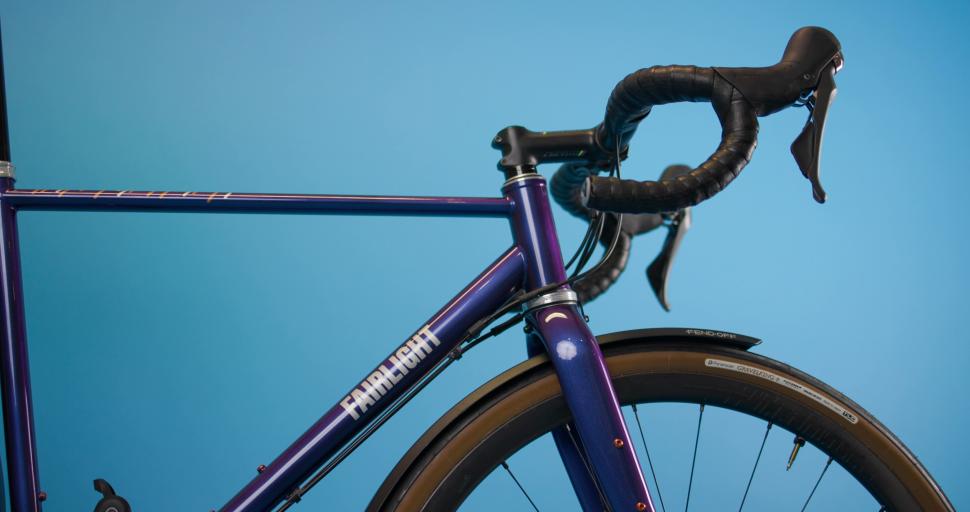
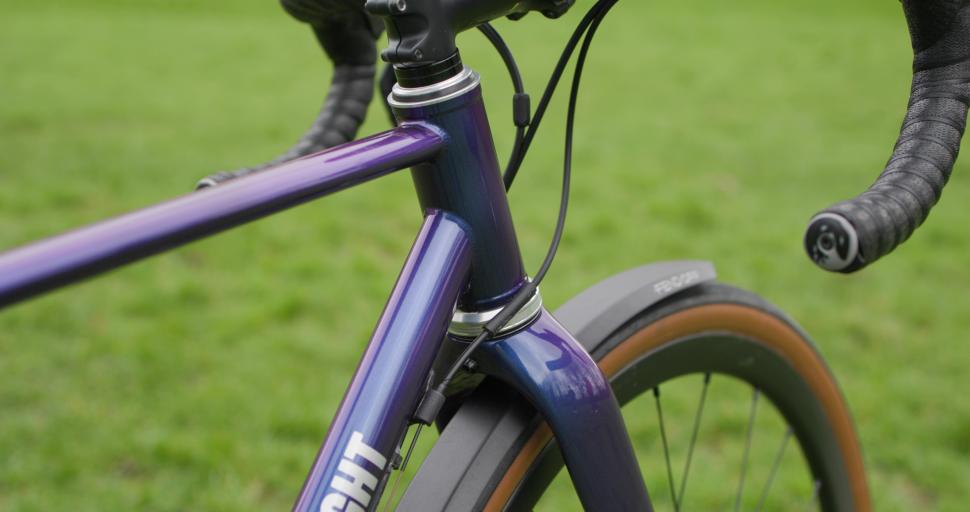
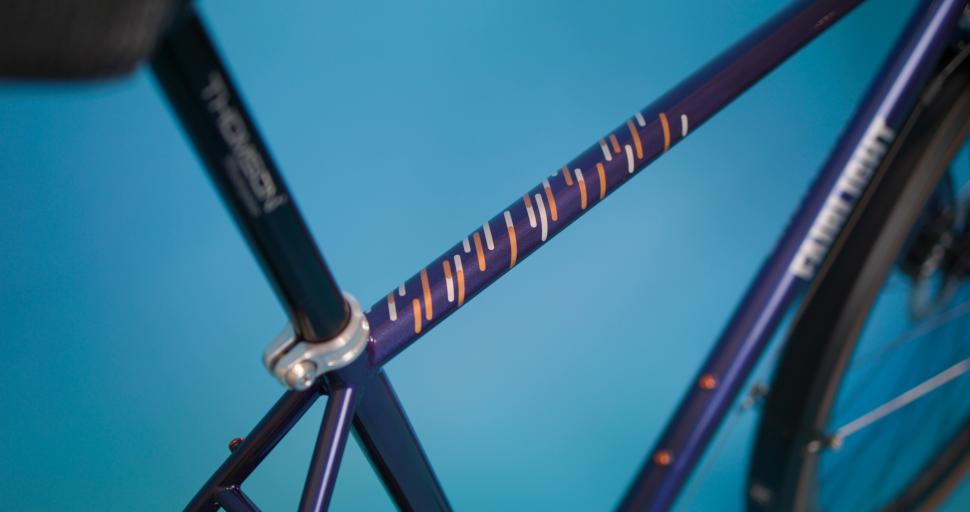
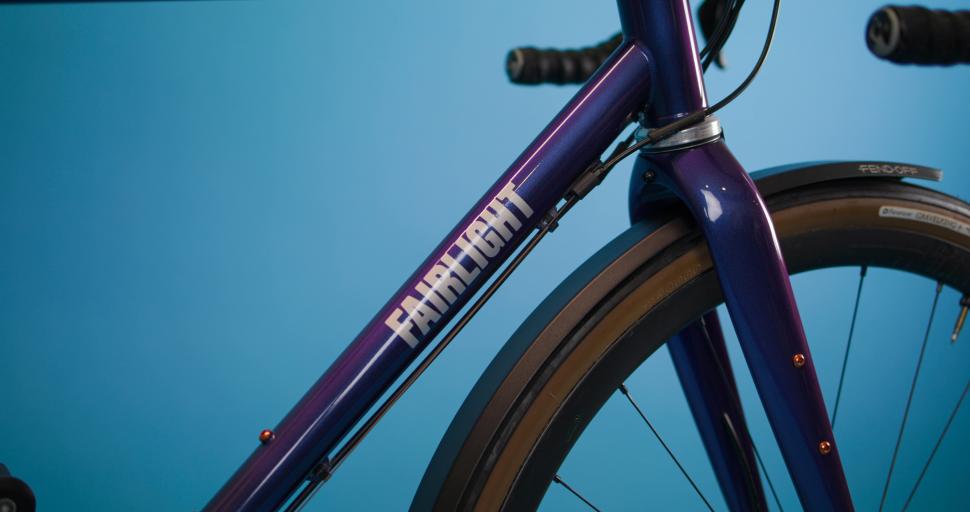
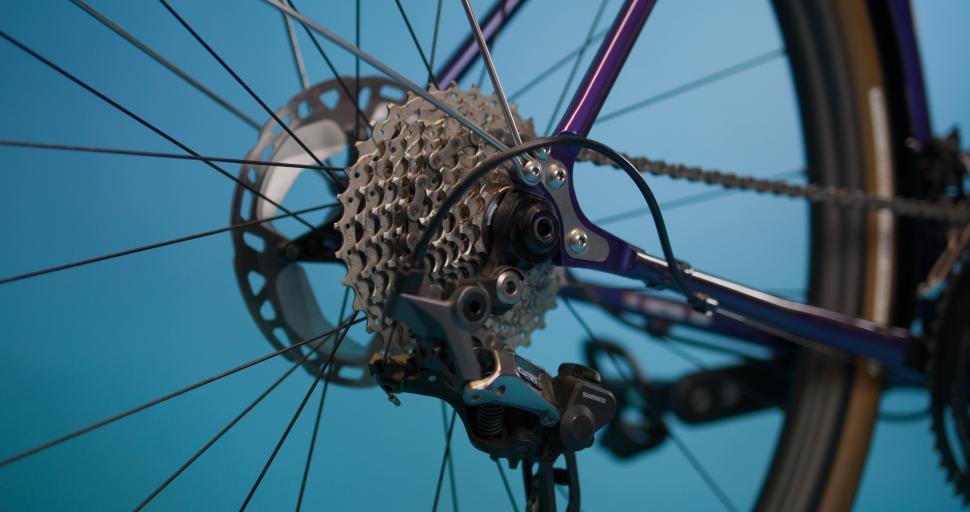
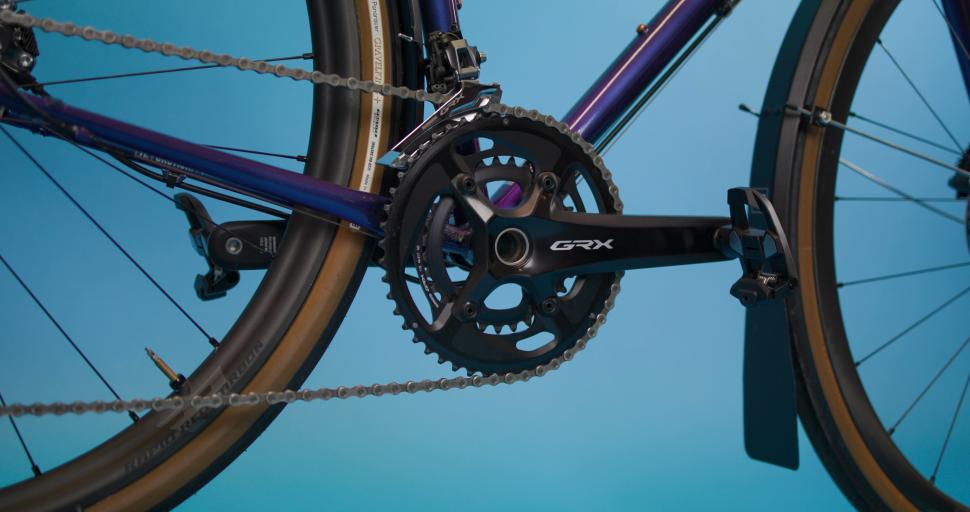
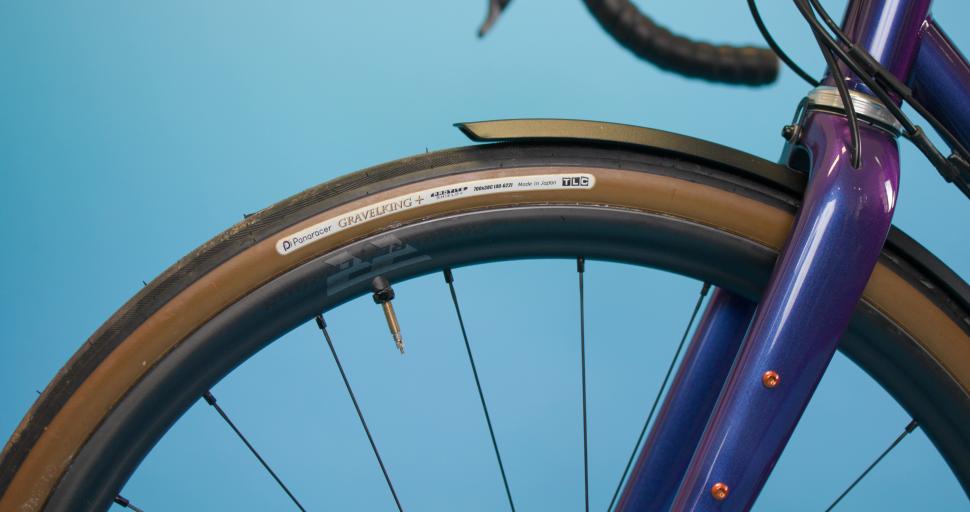
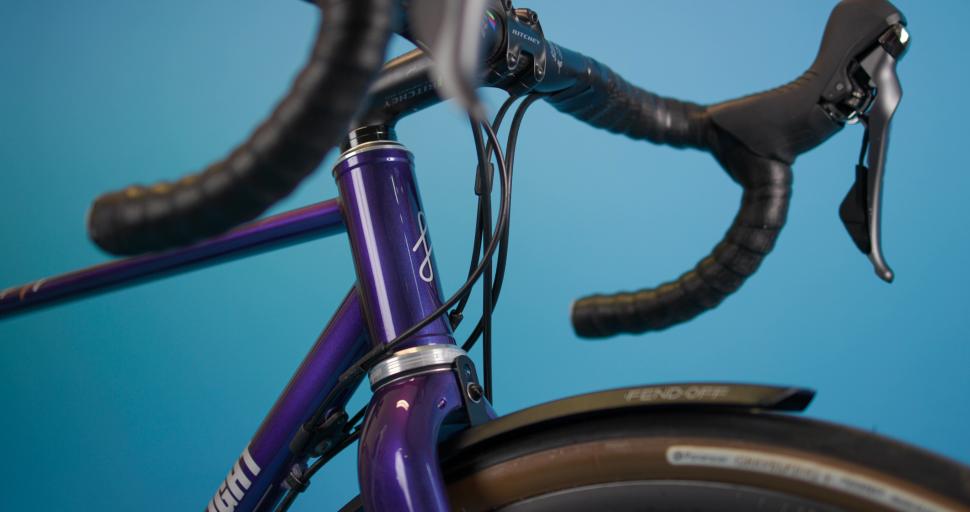
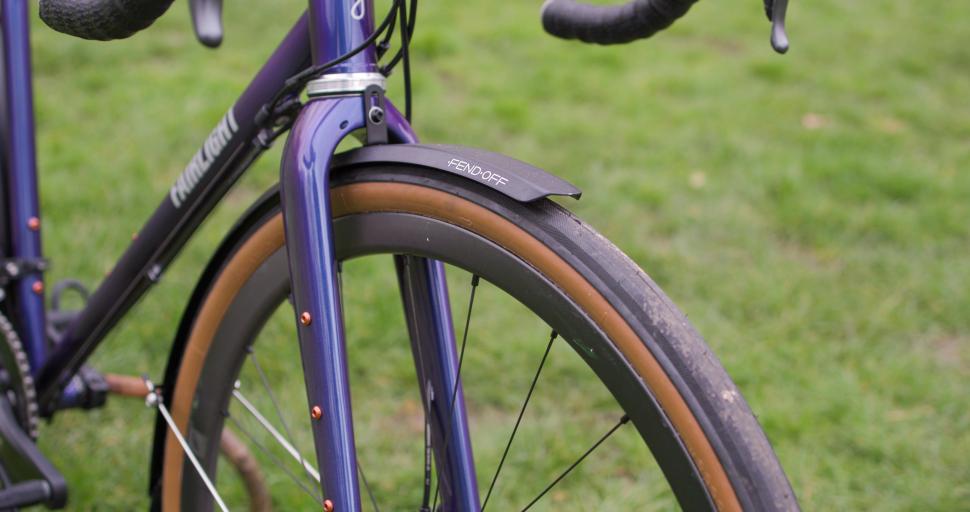
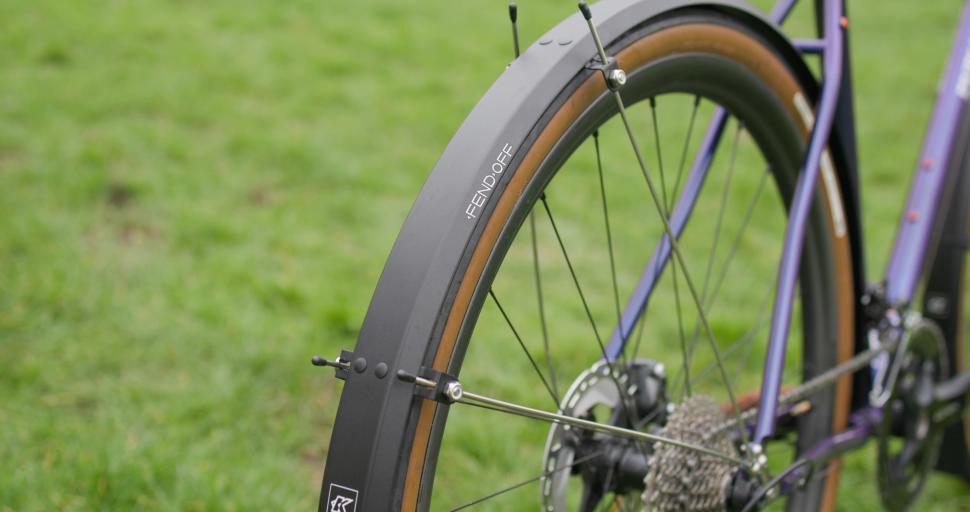
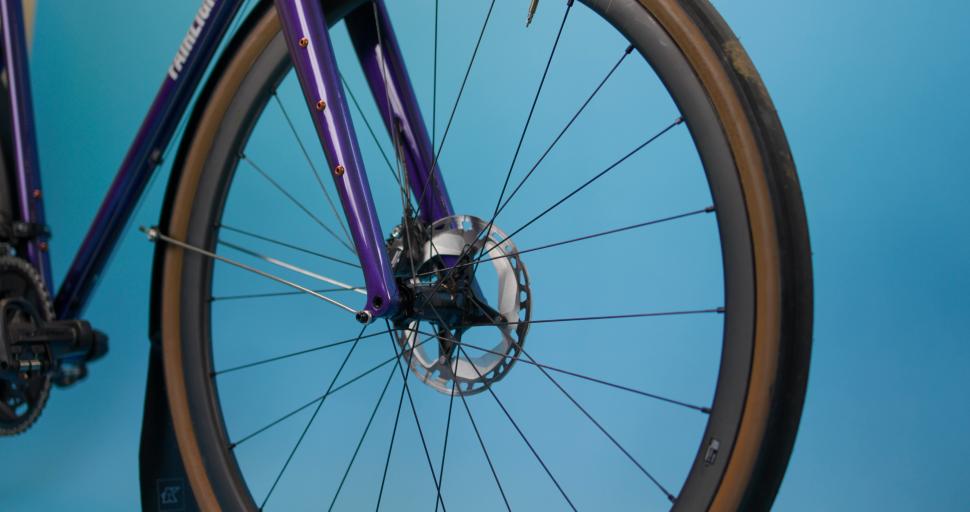
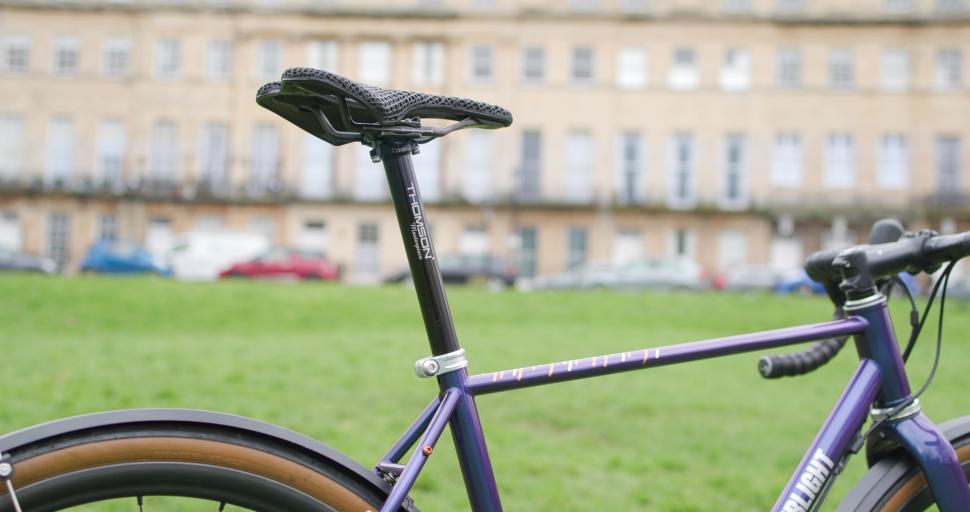
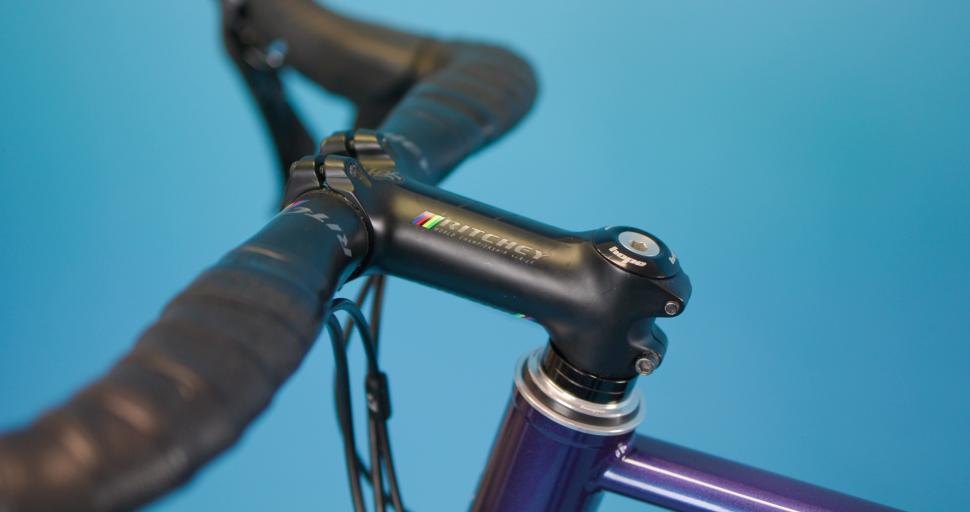
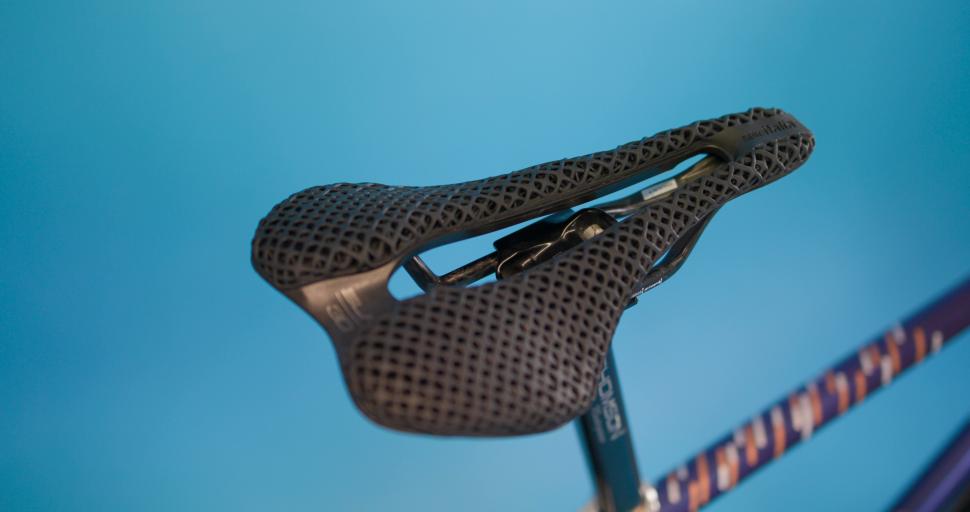
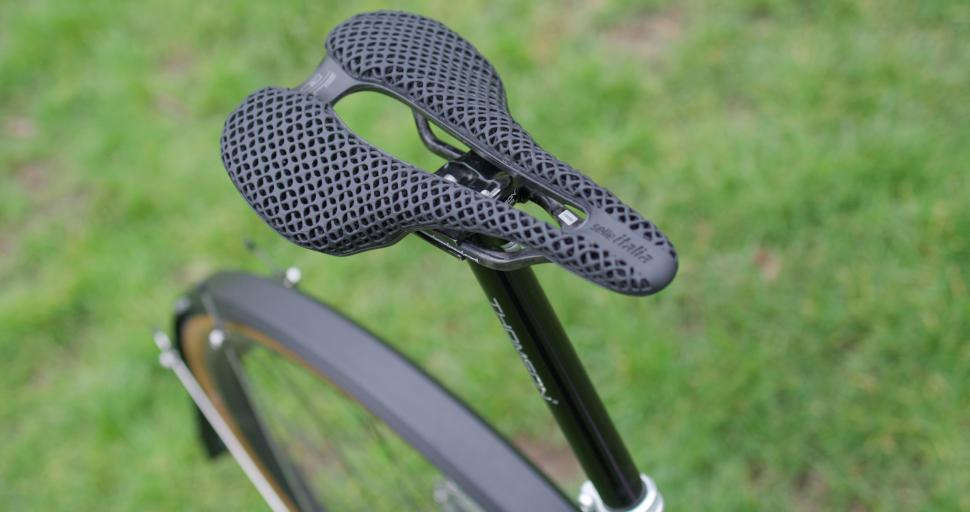
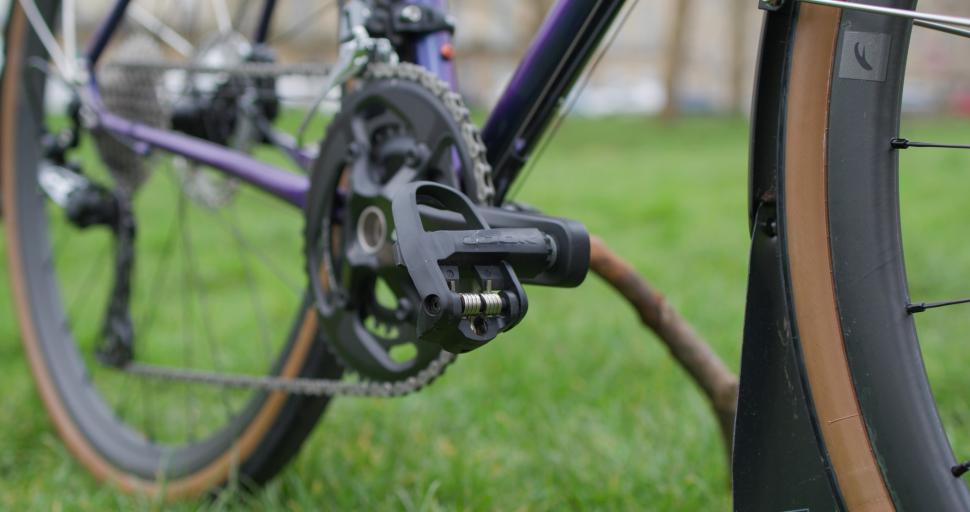
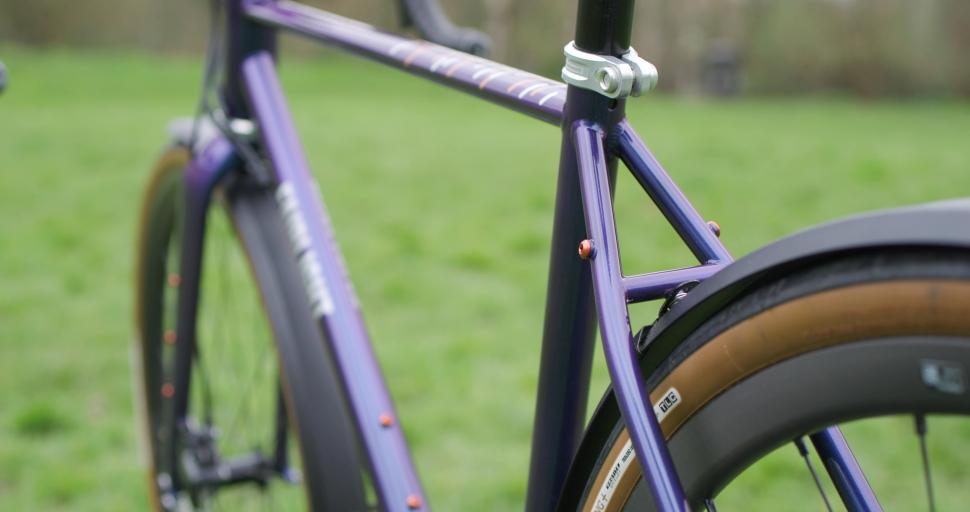
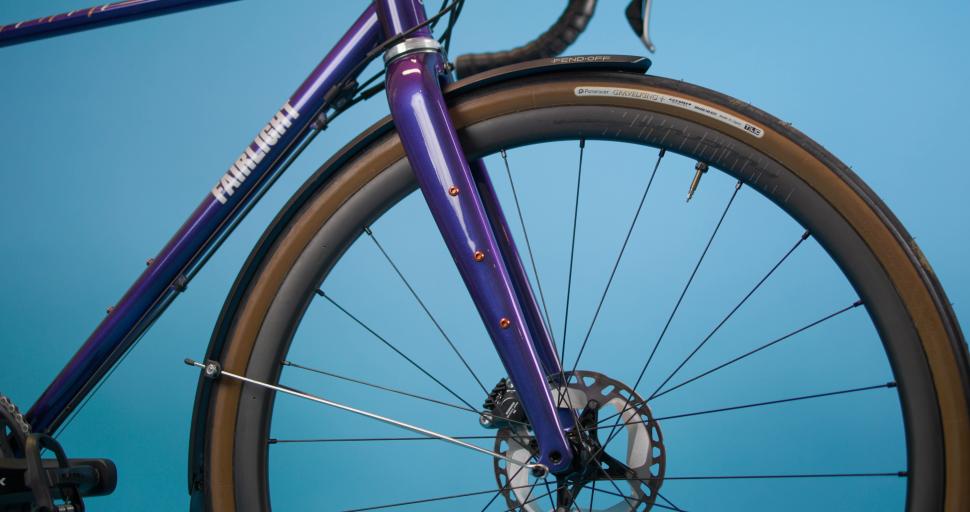
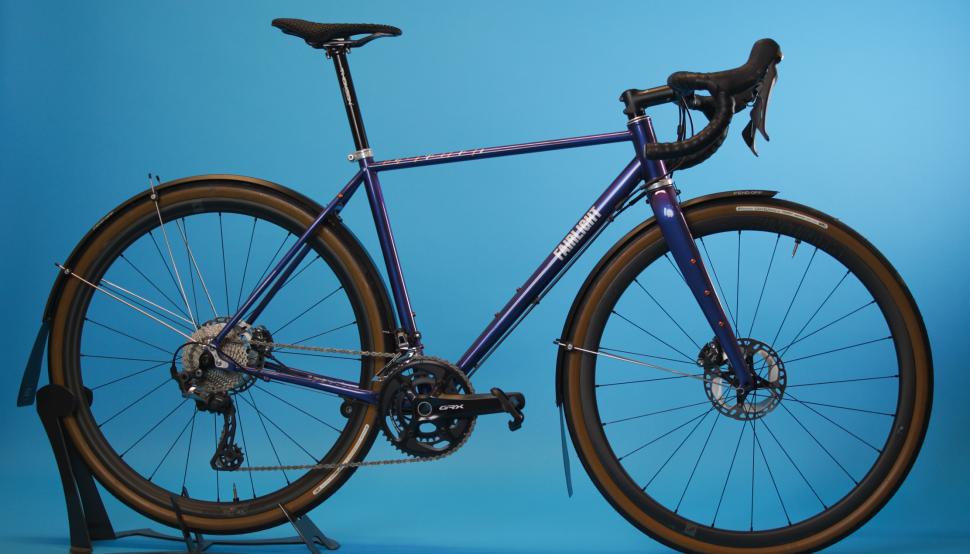
Add new comment
10 comments
Great to read about someone who knows their own mind. Well done Stu!
Congrats on the steel frame and mechanical group with a proper gear ratio. But why not go the whole hog and really profit from the versatility of steel/metal, ditch de disc brakes and get a far more shock absorbing fork, as well as properly integrated mudguards (with rolled edges, stays on the outside...) lights and racks, the only types of integration you actually need? For only 2kg more, and probably not a lot more £££-wise, you'd have a far more versatile and useful bike.
Maybe, just maybe, the professional bike reviewer knows what they are doing and got the bike/accessories that suits them and the type of riding they want to use it for?
That is a stunning build. top marks
Two Trek Domane carbon fibre framed bikes have been my summer & winter bikes for over a decade now. Apart from the frames, they're both configured just like the Fairlight of the article, with many of the same or similar components. External cables with mechanical gears of low bottom and no ridiculous TdF racer top but small ratio gaps. (One has a scavenged triple Dura Ace 7803 chainset).
I wouldn't go back to a steel frame as these Domanes are so very comfortable .... but also very good at turning pedal thrusts into thrust of the back tyre contact patch on the road. A portion of the comfort and efficiency comes from the carbon fibre frames, which are smooth and "fast" of themselves (ride better than any steel bike I've ever ridden over the decades, even when shod with skinny tyres, as they were when I first bought them 12 and 11 years ago respectively).
The winter bike shod with gravel king tyres was a good "gravel bike" before gravel bikes became a thing.
As the article seems to suggest, some of the Fairlight's appeal seems to be purely a matter of taste in how it looks. Personally, I try to avoid such "fetish" (as the reviewer himself describes this). Form following the functions of vary-layered carbon fibre frame parts might mean novel frame shapes but it also means great comfort and efficiency.
And, despite the scuttlebutt, CF frames are easier to repair than steel ones. Oh yes they are! Not that I've ever had to do so. They're also tougher.
I'll admit I haven't ridden that era of Domane, but compared to the last 3 generations, my Fairlight Strael is just as effective at putting power down and also very comfortable. These Fairlight frames are nothing like the steel bikes you've ridden over the decades. The Domane is a fine bike and was actually the other final contender when I purchased my Fairlight. I love the classic look of the Fairlight, but that is not what makes it a great bike, it's an extra bonus. An equivalent specced (and weight) Domane would have nearly cost 3 times as much, and had extra complexity of IsoSpeed to account for the carbon itself not being able to provide the desired compliance. Plus I think the curved top tube on recent Domanes looks a bit goofy.
I'll also disagree on carbon repair. Sure a decent carbon repair shop can easily fix it, but they're using generic carbon that's going to be nothing like the special combination of different layers and thicknesses of multiple types of directional and weaved fibers used by the manufacturer, resulting in a change to the properties of that section of frame. Not exactly ideal but certainly plenty strong if that's the only concern.
Also curious as to how you feel they are tougher?
As with all materials, any fix will be a compromise when replacing original material with the repair substitute. But to fix a bent steel frame usually requires disassembly of the joins with a whole new tube or whatever going in whereas a CF fix usually requires only a quick patch.
Does a CF patch compromise the orginal CF layup? Difficult to say and probably depends on how much damage needs fixing; and where on the frame.
Whilst a CF frame will crack when a crash or other incident applies enough force, that force generally needs to be a lot more than the force required to damage a steel frame - partularly a lightweight super-metal steel frame.
I know the Fairlight will have "better" tubing than the tubes of old but I recall many instances of race crashes - and mere carelessness in bike-parking - where a minor fall severely dented and bent the tubes of Reynold 531 frames. Sometimes the bike was still rideable but a big dent in the middle of one's wafer-thin top tube or chainstay is not inspiring of confidence in a bike! Such damage more than likely will also compromise the performance of the frame in various ways.
It often cost nearly as much as the original frame to repair significant bends, breaks and twists in a steel frame, since it required the frame to be partly rebuilt and wholly resprayed, neither of which is cheap.
Tyres at 100psi, right?
Not for very long if he's running tubeless!
Looking forward to taking my secan to Switzerland and the Alps in late June. Running grx 820 1x so will be much easier on old legs than the 11-28 of last time.